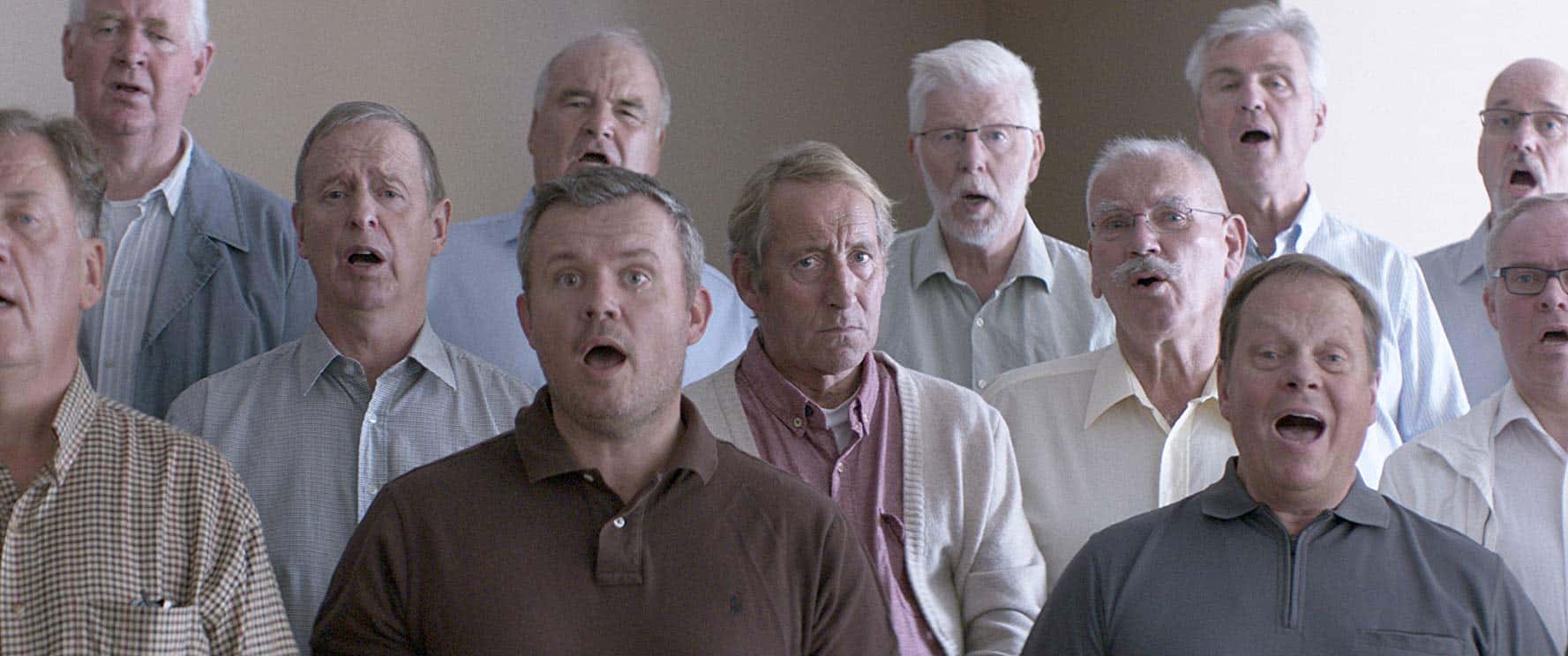
Melancholy, absurdity, and foolish judgment escalate from 0 to 100 real quick.
Writer-director Hafsteinn Gunnar Sigurðsson’s third film Under the Tree, which was Iceland’s submission for Best Foreign Film at the 90th Academy Awards, is a dark comedy that examines how rationality and reason crumble under the presence of grief and sorrow. Although Under the Tree was not nominated for Best Foreign Film, it proves to be well made with a contemplative story worth learning from. It sets up as a bleak, goofy film that aggressively escalates into an absurd, dark commentary on the relationship between unresolved guilt and rash decision-making. Eventually, Under the Tree sinks your soul into unexpected hopelessness and despair, but its introspective story and stark foreignness provide a poignant escape from the mindless summer blockbusters we’re so inundated with.
Under the Tree follows two plot-lines. After Atli (Steinþór Hróar Steinþórsson) is accused by his wife Agnes (Lára Jóhanna Jónsdóttir) of being unfaithful, he is forced to move back into his parents’ house. His return, however, proves rather untimely as his parents Baldvin (Sigurður Sigurjónsson) and Inga (Edda Björgvinsdóttir), are currently engaged in suburban warfare with their neighbors Konrad (Þorsteinn Bachmann) and Eybjorg (Selma Björnsdóttir). What started as a petty dispute over the shadow cast by a tree escalates into all-out war as the neighbors relentlessly accuse and attack each other over mere misunderstandings. Meanwhile, Atli tries to speak to his wife and daughter but falls into murky waters of stalking and kidnapping. This entire debacle follows a mysterious tragedy in the family which brought overwhelming grief, taxing the minds and souls of Atli and his family.
While Under the Tree certainly delivers on the dark aspect of dark comedy and doesn’t offer much to enjoy or laugh at, the film provides plenty of things to appreciate. It is refreshing not because it’s a fun time at the movies, but because it provides a layered analysis of the corrupting presence of heartbreak. However, it does so by immersing you in dourness and despair, invading your soul with bitter hopelessness and sadness. Needless to say, this film is a downer and the promise of laughs from this dark comedy should be taken very lightly.
It truly is a dark comedy. Any humor in the film is found through the absurd actions of our characters and the dismal nature of the film. Here’s what I’ll say about the comedy in the film: the most hilarious scene involves the murder of a dog. In this film, the humor acts as an escape from the remorseful misery of the story, but it doesn’t result in great, booming belly laughs, and instead comes to subtly counterbalance the overarching agony the rest of the film conveys.
Sigurðsson uses all of his directorial proficiency to maintain a comprehensive bleakness and dourness throughout the film. Monika Lenczewska’s cinematography is melancholic and pale, providing audiences the lenses of our emotionally broken characters while Daníel Bjarnason’s score drowns you in the sad, heavy songs of our character’s hearts. Every actor brings somber, genuine performances that remind us of times where we’ve experienced our own substantiated pain. Sigurjónsson’s performance, in particular, really brings an authentic look at pent-up grief manifesting into sheer irrationality and impulsivity. His stoicism exponentially evolves into pure emotion, snapping into the protector and caretaker he once failed to be. The consistent tone within Under the Tree keeps you connected and engaged throughout and shows how well Sigurðsson can layer tone throughout every aspect of his film.
This film ends in tragedy that could have been avoided by communication, self-control, and rational thinking, and ultimately, Under the Tree reminds us that it’s difficult to remain reasonable when our hearts are struck with grief. Our characters never really dealt with their grief. They let it grow. They let it manifest into an irrational beast that controlled their very relationships, marriages, and lifestyles. Although the actions portrayed in this film may be hyperbolic and slightly unrealistic, it still highlights how unresolved grief and impulsivity can control our lives and our actions. As our characters quickly descended into madness and irrationality, we’re reminded of how often we find ourselves controlled by our emotions.
Most people probably won’t enjoy Under the Tree. It’s possibly too sad and ridiculous for most viewers to appreciate, but it will probably cater to a small, niche audience who can enjoy and discern the complexities of depraved, absurd humor. Go into this dark comedy expecting more dark than comedy and remember that it provides an apt opportunity to do some soul-searching and introspection. It’s well made and provides substantial food for thought, but its hopelessness and sorrow hurt the soul.
Related Topics: Foreign Film

